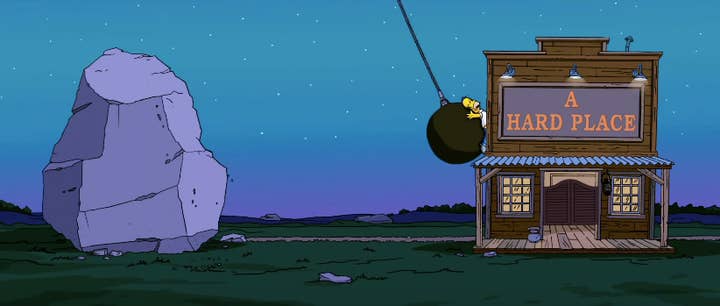How can we solve Nintendo Switch's cartridge cost quandary?
Developers are being unintentionally pushed towards digital
This article was first printed in the GamesIndustry.biz UK Retail and Publishing Briefing. To receive these special emails, sign up here.
Nintendo Switch games cost more than PS4 and Xbox One titles.
Those that remember the N64 and PSOne era will know why. Switch uses a proprietary cartridge-based media that costs more to manufacture and distribute than discs. The price varies depending on whether you need a 1GB card or a 32GB one (Nintendo is not stipulating a minimum RRP).
Now in the top-end AAA area, this isn't a massive problem. AAA titles on PS4 and Xbox One have been gradually increasing in cost anyway - driven by rising budgets - and just a quick search around and you'll see that Zelda: Breath of the Wild's retail price is pretty much in-line with Horizon: Zero Dawn on PS4.
The problem lies amongst those mid-tier games (B-games, remakes, indie-A titles etc) and it's an issue recently highlighted by Tequila Works and its adventure game Rime.
Rime on Switch is going to cost £10 more than its PS4 and Xbox One counterpart (£39.99 vs £29.99) - something recently explored and observed by our friends over at Eurogamer.
That price tag is for both the physical and digital version of the game. Nintendo, similar to Xbox and PlayStation, have a policy where some form of parity must be kept between digital and physical releases (retailers remain important to platform holders for many reasons, not least because they need them to sell low-margin hardware). This creates a situation where digital games on Switch can end up costing significantly more than they do on other consoles, and with no obvious reason to the consumer.
Now, that places developers and publishers in a bit of tricky situation. If they want a physical component - and therefore reach the widest possible audience of Switch players - then they need to stick a higher price tag on it. Not only would that disappoint fans, but it ultimately limits the title's potential.

A solution is to add extra content into the Switch version - something that at least two developers I've spoken to are considering - but that also risks upsetting fans of the Xbox One/PS4 version(s).
Alternatively, developers/publishers can simply make the game digital-only, which brings down the price but leaves that still-lucrative boxed market untapped.
It's a classic rock/hard place situation.
Nintendo is a company not known for negotiating; anyone that has dealt with it in the retail world will be familiar with that ('This is the price. Take it or leave it.'). Nintendo is also of the view that Switch games are worth the extra money because, unlike with Xbox One and PS4, these games can be taken on-the-go, too. There's certainly an argument to be made there, but I'm not convinced consumers - and therefore publishers and developers - see it in the same way.
Nintendo doesn't like to subsidise its products to keep the costs low for consumers (that's why Switch is being sold at a profit, in contrast to how its competitors do business). There's nothing wrong with that. Yet a problem arises if this attitude forces developers and publishers to forgo the physical route and head down the digital-only path because the cost-of-goods are too prohibitive. Nintendo platforms are already renowned for not being especially friendly for third-parties and this will only add to those pre-existing issues. It will also make things harder with retailers, who will find themselves with fewer games to stock and therefore limiting the shelf space available for Switch going forwards.
This is a lose-lose-lose situation for everyone involved.
As manufacturing increases for Switch games (as it hopefully will), the prices should fall. So perhaps Nintendo ought to take the longer view and find a way (even if it means cutting that margin) to encourage more Switch games onto shelves, and not fewer.
